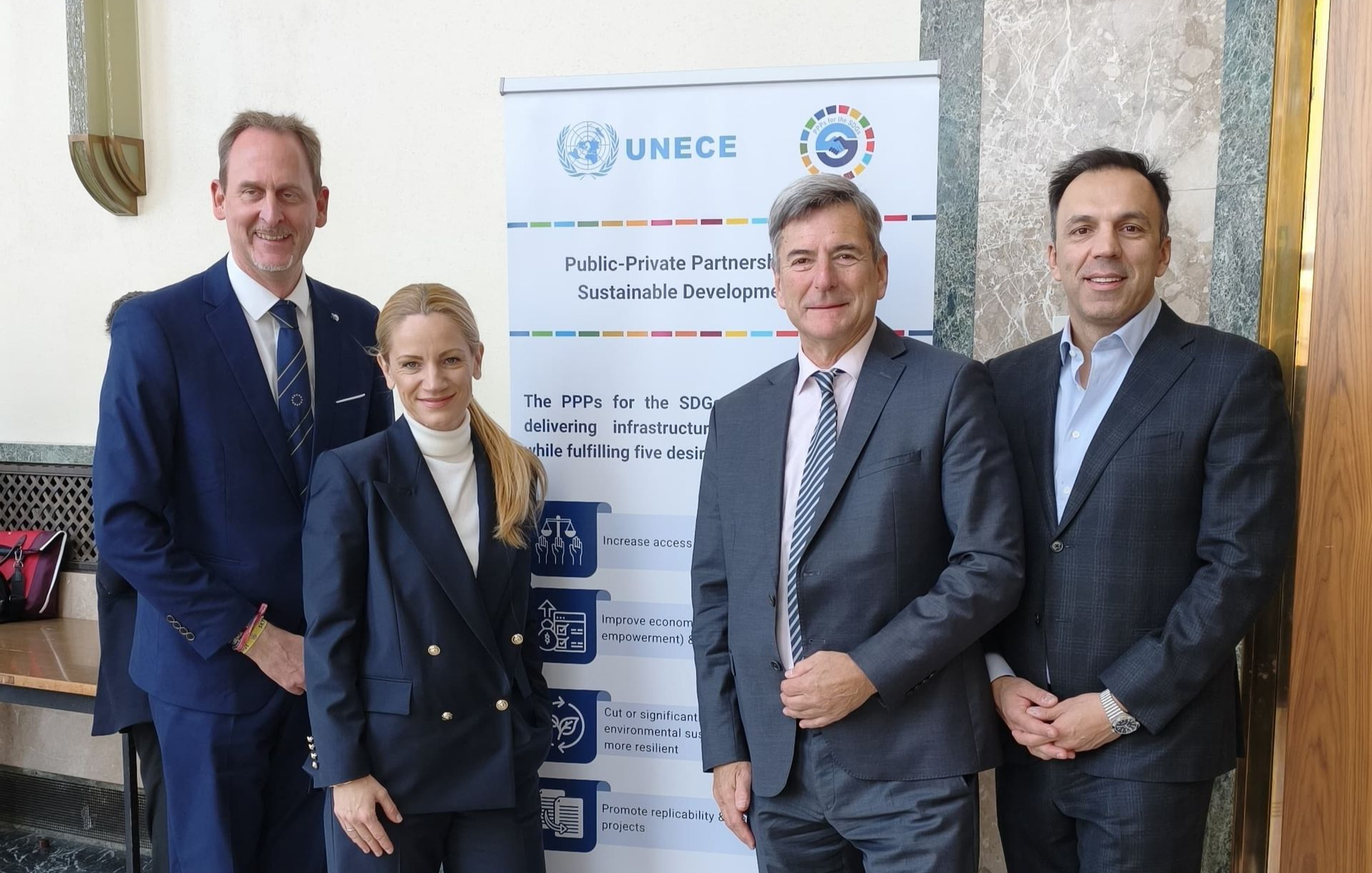Corona virus: Actions by the EU Commission
27. März 2020
Health care in the EU lies in the full competence of the member states. The EU Commission is taking measures to deal with the pandemic.
Brussels.
Health care is regulated by the nation state in the European Union. The EU Commission has no competence to intervene here. As far as possible, the EU takes many measures and coordinates relief supplies, repatriations, promotes vaccine research and supports states in combating the economic effects of corona.
Flexible aid scheme
The Commission has put forward a proposal for a temporary aid framework to support the economy in the corona crisis. Among other things, the new framework enables member states to grant companies grants or relief (e.g. for taxes) of up to EUR 800,000 and to secure loans through state guarantees.
EU funds for vaccine
The European Commission is offering the pharmaceutical company CureVac a loan of 80 million euros for the rapid development and production of a vaccine against the coronavirus. This is done as part of the "InnovFin - Infectious Diseases" financing facility.
EU co-finances repatriations from abroad
With the EU civil protection mechanism, the European Commission supports repatriations of EU citizens from abroad to their home countries. So far, around 6,000 people have been brought back. In Austria alone, the EU co-financed the return of around 1,600 people.
EU eases debt rules (“Maastricht”) & invests
The European Commission wants to use the structural funds to mobilize investments of 37 billion euros in the member states. In addition to the national programs, this should rebuild the economy after the crisis.
EU creates medical supplies
As part of the rescEU emergency reserve, the European Commission is initiating a strategic stockpile of medical equipment such as respirators and protective masks to support EU Member States against the backdrop of the COVID-19 pandemic, EU Commissioner for Crisis Management, Janez Lenarcic said that the EU will bear up to 90% of the procurement costs. Initially, 50 million euros would be earmarked for this.

Bei einem Treffen mit Stefan Haböck, Ukraine-Experte und Policy Advisor am Institut der Regionen Europas (IRE), tauschte sich eine ukrainische Delegation über grenzüberschreitende Zusammenarbeit zwischen Regionen, sowie die Fortschritte bei der Dezentralisierungsreform aus. Wien. Ende Jänner traf IRE-Policy Advisor Stefan Haböck eine Delegation aus der Ukraine, bestehend aus Vertreterinnen und Vertreter von Regionalverwaltungen, Universitäten, Europa-Regionen und zivilgesellschaftlichen Organisationen, zu einem Arbeitsgespräch in Wien. Die 2014 gestartete Dezentralisierungsreform gilt als ein großer Erfolg und gab den lokalen Selbstverwaltungsgemeinden (Hromadas) mehr Macht. Die stärkere regionale Entwicklung und Demokratie war auch entscheidend für die Resilienz in den Regionen zu Beginn der vollen Invasion Russlands in die Ukraine im Jahr 2022. Der Krieg gegen die Ukraine hat die Dezentralisierung auch verlangsamt, sind doch viele Regionen (Oblaste) und lokale Selbstverwaltungsgemeinden (Hromadas) nun als Militärverwaltung (wenn auch unter ziviler Führung) eingestuft. Doch weiterhin besteht das Ziel, die Gemeinden und Regionen in der Ukraine weiter zu stärken. In den vergangenen Jahren habe sich mehrere ukrainische Regionen (Oblaste) auch zu Europa-Regionen zusammengeschlossen, um für den intensivierten internationalen Austausch ihre Stärken zu bündeln. Die grenzüberschreitende Zusammenarbeit mit Regionen in der EU dient dabei dem best-practice Austausch zwischen Verwaltung, Wirtschaft und Wissenschaft. Foto (v.l.n.r.): Stefan Haböck ( IRE ), Vasyl Poluyko ( Direktor Westukrainisches Ressourcenzentrum ), Oksana Bohutska ( Internationale Beziehungen der Regionalverwaltung Oblast Czernowitz ), Tetjana Schawlowska ( Direktorin des Regionalen Entwicklungszentrums der Geisteswissenschaftlichen Universität, Ismajil ), Prof. Myroslava Mylenka (Professorin für Ökologie an der Karpaten-Nationaluniversität, Iwano-Frankiwsk ) und Prof. Ihor Kaspuk ( Vizerektor für Internationale Zusammenarbeit der Universität für Wirtschaft und Recht, Lemberg ).

Fedir Maksymiuk absolvierte erfolgreich ein Praktikum am Institut der Regionen Europas (IRE). Salzburg . Der österreichischte Student mit ukrainischen Wurzeln Fedir Maksymiuk absolvierte erfolgreich ein 1-monatiges Praktikum am IRE in Salzburg. Der Student im Bachelorstudium PPÖ (Politik-Philosophie-Ökonomie) an der Universität Salzburg, der auch als Studienassistent tätig ist, verfasste im Rahmen seines wissenschaftlichen Praktikums eine Arbeit mit dem Thema: " Kärnten als subnationaler politischer Akteur: Paradiplomatie und Multi-Level-Governance im Alpen-Adria-Raum ". Wir danken Fedir herzlich für sein Engagement am IRE und wünschen alles erdenklich Gute für den weiteren beruflichen und privaten Weg! Alle Arbeiten unserer Studentinnen und Studenten stehen kostenfrei >>> hier zum Download zur Verfügung

Das Institut der Regionen Europas (IRE) feierte mit dem rumänischen Generalkonsulat den "Tag der Einheit". Salzburg. " La mulți ani, România" , hieß es am 1. Dezember 2025 im rumänischen Generalkonsulat in Salzburg. Anlässlich des Nationalfeiertages von Rumänien lud Generalkonsul Radu-Dumitru Florea zu einem Empfang. Nach Begrüßung durch Landtagsabgeordneten Josef Schöchl begeisterte das 23jährige rumänische Ausnahmetalent Daria Văcăroiu singend und mit der Harfe das Publikum mit einer Mischung aus rumänischen Gedichten und Volksliedern. Die Volkstanzgruppe "DOR" (Foto) aus Oberösterreich rundeten das Programm mit traditionellen Tänzen ab. Am 1. Dezember begehen die Rumäninnen und Rumänen den "Tag der Einheit". Bereits 1861/62 vereinigten sich die Fürstentümer Moldau und Walachei und die Region Dobrudscha, womit sie den Grundstein für den heutigen rumänischen Staat legten. Nach dem 1. Weltkrieg, am 1. Dezember 1918, schlossen sich weitere Regionen, wie Siebenbürgen und Bukowina, mit Rumänien zu einem größeren Land zusammen.

Dr. Aisa Henseke wurde neu in den Vorstand des Instituts der Regionen Europas (IRE) gewählt. Salzburg. Seit der Generalversammlung im September 2025 ist Dr. Aisa Henseke neues Mitglied Vorstandes des Instituts der Regionen Europas (IRE). Die im serbischen Ljubovija geborene Aisa Henseke studierte Geographie an der Universität Salzburg mit einem Abschluss in Land und Regionalentwicklung und städtische Raumplanung. Danach arbeitete sie als Forschungsassistentin für die Research group Urban Landscape Ecology. Nach einer Tätigkeit als Assistentin am Institut der Regionen Europas (IRE) von 2010 - 2012 erlangte Aisa Hanseke ihr Doktorat in Naturwissenschaften an der Universität Salzburg. Seit 2015 ist sie Büroleiterin des Forschungsinstitutes für Politisch-Historische Studien Salzburg und spricht Deutsch, Englisch, Bosnisch, Kroatisch und Serbisch.

IRE Generalsekretär Joachim Fritz und IRE Trustee Andreas Kiefer waren in Genf, um an der 9. Session der PPP (Public-Private-Partnership) Arbeitsgruppe innerhalb der UNECE teilzunehmen. Genf. Die UNECE (United Nations Economic Commission for Europe) ist als Organisation innerhalb der Vereinten Nationen (UNO) zuständig für die wirtschaftliche Kooperation in Europa im Rahmen des SGD Ziele (Sustainable Development Goals). Die UNECE PPP Working Group beschäftigt sich mit allen Fragen rund um Public-Private-Partnership Projekte für Gemeinden, Regionen, Staaten und Unternehmen. Unser IRE-Generalsekretär Joachim Fritz und Kuratoriumsmitglied & Föderalismus-Experte Andreas Kiefer führten im Rahmen dieser PPP UNECE Working Group i nhaltlich tiefgehende und aufschlussreiche Diskussionen und Gespräche über neueste Entwicklungen und Initiativen in dem Bereich, unter anderem mit Jelena Tadić (PPP Investment, Belgrad), Obrad Tadic (Smart Energy Invest, Belgrad), Tony Bonnici (UNECE PPP Abteilungsleiter) und Elisabeth Türk (Direktorin für Wirtschaftskooperation, UNECE). Das Institut der Regionen Europas (IRE) unterstützt die Ziele der SDG und vernetzt Gemeinden, Regionen und Unternehmen aus der EU und den Beitrittskandidatenländern im Bereich best practice.

Die Botschaft von Belgien lud anlässlich des traditionellen königstages zu einem Empfang nach Wien. Wien. Jedes Jahr am 15. November feiert Belgien das Fest des Königs. Anlässlich des Festtages, luden I.E. Caroline Vermeulen, Botschafterin von Belgien in Wien und bei den Internationalen Organisationen, und S.E. François Delhaye, Botschafter Belgiens bei der OSCE, zu einem Empfang in die belgische Botschaft nach Wien. I.E. Caroline Vermeulen (Mitte) ist seit 2022 Botschafterin von Belgien in Österreich. Zuvor war die Diplomatin unter anderem in Taiwan, Russland und Japan stationiert und fungierte als Sekretärin von Königin Paola. Zuletzt war sie Direktorin für Europäische Auswärtige Angelegenheiten im belgischen Außenministerium. Mit Belgien verbindet das Institut der Regionen Europas (IRE) eine langjährige gute Kooperation unter anderem mit der Deutschsprachigen Gemeinschaft Belgiens, die seit vielen Jahren Mitglied im europäischen Netzwerk des IRE ist. Dieses Jahr trat auch die Region Flandern dem IRE bei. IRE-Vorsitzender Franz Schausberger bedankte sich bei Frau Botschafterin Vermeulen für die gute Zusammenarbeit und betonte die Bedeutung föderaler Staaten im vereinten Europa.

Das Institut der Regionen Europas (IRE) lud am 19. November 2025 zu einem Leseabend ganz im Zeichen von Kunst, Kultur und Emotion in die International Salzburg Association. >>> zum Fotoalbum des Leseabends Salzburg . 1991, nach dem Zerfall der kommunistischen Diktatur in Albanien, machten sich über eine halbe Million Menschen auf, um im "Westen" ihr Glück zu versuchen. Einer davon war Fate Velaj. In seinem Buch "Kreuztanne", ein autobiographischer Roman, erzählt er die Geschichte seines Weges von Albanien über das Flüchtlingslager Traiskirchen und seinen Stationen als Tellerwäscher bis zum Fabrikarbeiter in Niederösterreich zwischen 1991 und 1998. Velaj, der später Berater des albanischen Premierministers und Abgeordneter wurde und seit 2024 Botschafter seines Landes in Österreich ist, kommentierte Textpassagen, kraftvoll vorgelesen von Germanistin und Journalistin Heidi Schausberger, mit persönlichen Erlebnissen und Eindrücken. Von dem Traum der Albaner in der Diktatur, einmal in Italien leben zu können bis zur Erkenntnis, dass man eine Bestimmung hat und selber anpacken muss, um sein Glück zu finden. Eine zentrale Rolle in seiner Lebensgeschichte spielt dabei das namensgebende Gasthaus Kreuztanne in der niederösterreichischen Gemeinde St. Anton an der Jeßnitz, in dem Fate Velaj Anfang der 1990er Jahre als Tellerwäscher begann. Neben dem Buch Kreuztanne, als Teil einer Trilogie ("Kreuztanne - Nilkon - Itaka"), präsentierte Botschafter Velaj auch seinen Film "Face Anthology", in dem er ausdrucksstarke Gesichter und Lebenssituationen von Menschen aus verschiedenen Ländern wie Rumänien, Ägypten oder Bulgarien in kraftvollen Bildern einfing. Zudem zeigte der passionierte Maler, der unter anderem auch bei Hermann Nitsch lernte, dem interessierten Publikum eine Auswahl seiner Gemälde. IRE-Vorsitzender Franz Schausberger, der durch den Abend führte, zeigte sich begeistert vom Lebensweg des Künstlers und Diplomaten und unterstrich die Vorbildfunktion von Menschen, die stets bereit sind zu lernen, zu arbeiten und sich auf neue Gegebenheiten des Lebens positiv einzustellen. Das Buch erschien im August 2025 im Wieser Verlag .
Hot Issue - der Newsletter
Regelmäßige Informationen aus den Regionen Europas und von unseren Mitgliedern.
Regelmäßig informieren wir unsere Mitglieder sowie Interessierte über tagesaktuelle Themen und Entwicklungen in den Regionen Europas, den Institutionen der Europäischen Union und über die Aktivitäten des Instituts der Regionen Europas (IRE).
Melden Sie sich bei unserem Newsletter gerne jederzeit an
stefan.haboeck@institut-ire.eu
Tel: +43-662-843 288-30



